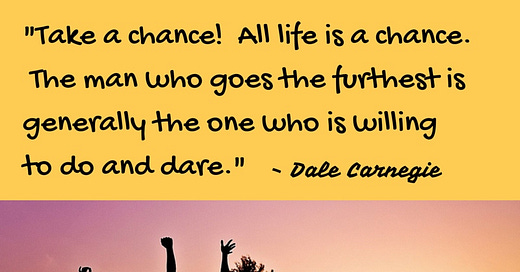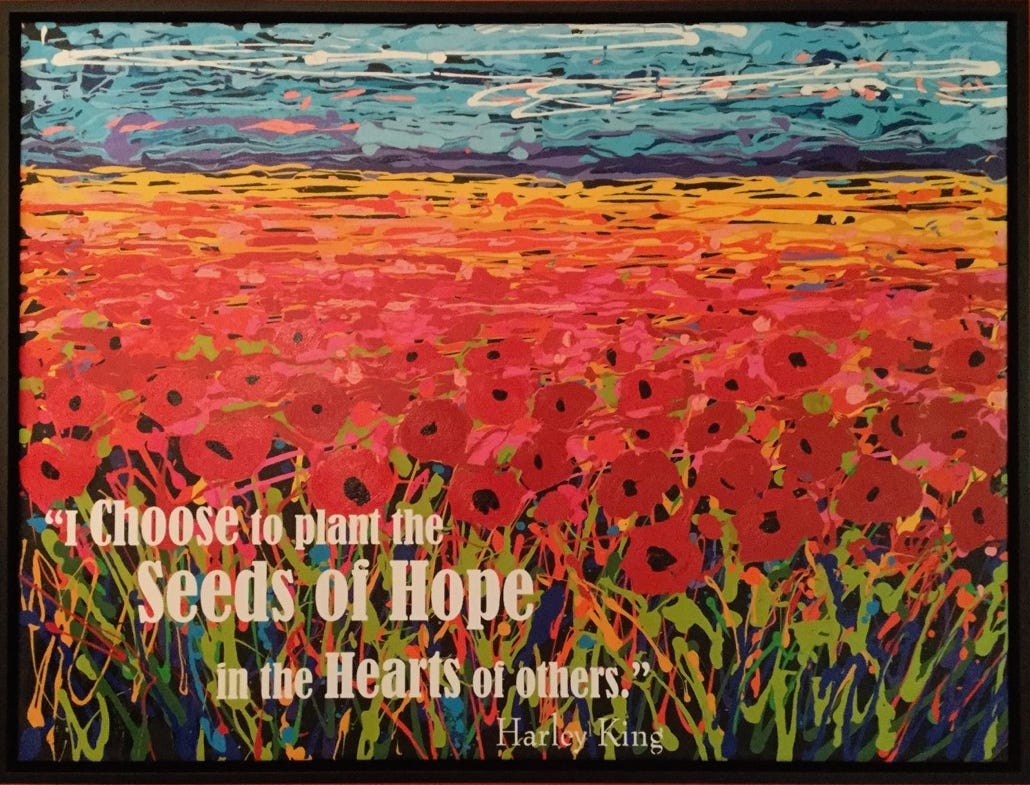Issue #36
Many of us are afraid to take risks and try something new. We keep waiting for the right time. Unfortunately, there is never going to be a suitable time. When we stop risking, we start dying each day. The safer we feel, the less risk we take. Security and safety are illusions of the mind. We are never 100% secure. I read a story about a woman who was driving on a country road and was killed by a tree that fell and hit her car. Just being alive is a risk.
Taking a risk does not mean you must throw caution to the wind and risk everything. Planned risk is best. How much are you willing to sacrifice? What are you willing to lose? Be ready with a plan B if plan A fails. Think ahead. I have seen people quit their jobs without a new job. They are putting themselves and others at serious risk. A better alternative would be to job hunt while employed. Leap, but have a safety net. High-wire walkers without a safety net risk death.
One of the most significant risks I took in my career was accepting a marketing and sales position for which I had no training. I worked at the company for five years as a writer of policy and procedure manuals and as a forms designer, earning a reputation for being analytical. I applied for the position of director of marketing communications and was rejected. Instead, the hiring vice president offered me a position as a marketing consultant. He was reorganizing the marketing department and wanted someone with analytical skills. The risk could have cost me my job and marriage, but fortunately, I learned fast and avoided failure. Taking this risk dramatically altered the direction of my career.
Begin with small risks that won't cause too much pain. You have to know what you are willing to lose. When I visited Las Vegas many years ago, I discovered how much money I was willing to risk — $5.00. I played the nickel slot machines and was happy to sit there for 3 or 4 hours, both winning and losing. I tried my hand at poker once and lost $20 in ten minutes, and I quit. I was not willing to lose my hard-earned money.
Now, some of you may be laughing. I am not a gambler. I know when to walk away. I know when to fold the cards. Yet, I have taken significant risks in my thinking. I have questioned and challenged everything I have been taught. I don't need hand-me-down answers to the eternal questions we all ask.
What kind of risk are you comfortable with? What are you willing to sacrifice? Do you have a safety net? Or do you throw caution to the wind and hope for the best? Is there a risk that you should be taking but are not?
Life is about taking chances. Risk is crucial to success, and most creative leaders understand this. The very nature of creativity is risk-taking. We have to break down old patterns and develop new ones. But if we are honest with ourselves, we must admit that we do not take risks in every area of our lives.
I, for one, will not risk my financial stability and security. I am an intellectual risk-taker. I will explore new ideas and new ways of thinking. I will question my beliefs and those of others, but I will not gamble the financial security of my family and myself. I will take risks with my writing and art, but I won't risk my relationships with my family and friends.
The most difficult risk is being honest with ourselves and admitting our failures and weaknesses. What are your blind spots? What are you not willing to admit to yourself or others? What do you want to keep hidden from the world? It takes courage to be honest with yourself, to face your fears and failures, and to assess your weaknesses.






